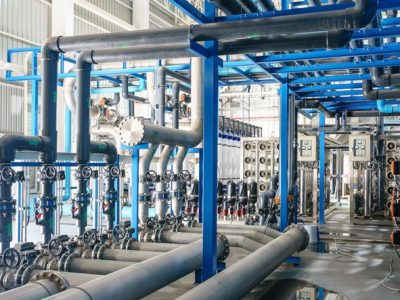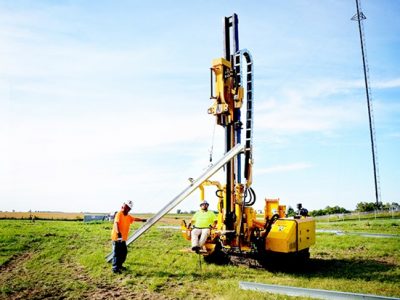Page speed is a critical factor in determining the success of a website. Not only does it impact the user experience, but it also plays a role in search engine optimization (SEO). Google and other search engines use page speed as a ranking factor, meaning that faster websites tend to rank higher in search results. Because of this, many Australian website owners are looking for ways to improve page speed for their websites. In this article, we will explore the relationship between page speed and SEO, and provide tips for improving the speed of your website.
How to think of page speed
Page speed is essentially a measure of how quickly a web page loads and becomes usable for the visitor. It can be affected by a variety of factors, including the size and number of assets on the page, the server response time, and the visitor’s internet connection.
When thinking about page speed, it’s important to consider the entire user experience, from the time it takes for the page to start loading, to the time it takes for all assets on the page to fully load and the page to become interactive. Fast page speeds lead to a better user experience, while slow page speeds can discourage visitors and hurt the overall performance of the website.
Page speed vs site speed
Page speed and site speed are often used interchangeably, but they refer to slightly different things. Page speed refers to the speed at which a specific page on a website loads and becomes usable for the visitor. Site speed, on the other hand, refers to the speed at which a website loads and becomes usable as a whole. In other words, site speed is a measure of the overall performance of a website, while page speed is a measure of the performance of an individual page.
Improving site speed involves optimizing the performance of all pages on a website while improving page speed involves optimizing the performance of a specific page. Both page speed and site speed are important for providing a good user experience—Which is a key part of how to do SEO.
Fast loading times lead to higher conversions
Fast page load times have been shown to lead to higher conversions, as they provide a better user experience and increase the likelihood that a visitor will complete a desired action, such as making a purchase or filling out a form. When a website page takes a while to load, users may become annoyed and leave the website before it even finishes loading. On the other hand, fast-loading pages keep visitors engaged and more likely to explore the website further.
Additionally, faster page load times have also been shown to improve search engine rankings, as search engines like Google use page speed as a ranking factor. This means that websites with faster page load times are more likely to appear at the top of search results, which can lead to more traffic and ultimately more conversions.
Page speed impacts web crawlers
Page speed not only affects user experience but also has an impact on how search engine crawlers index and rank a website. Search engines like Google use bots, also known as crawlers or spiders, to visit and index websites. These crawlers are designed to quickly scan and assess a webpage, but if a page takes too long to load, it can slow down the crawling process. This can lead to a lower indexation rate and lower visibility in search results. As a result, faster loading pages have an advantage in search engine rankings, as they’re more likely to be indexed and more quickly indexed by the crawlers.
Additionally, slow page speeds can also cause search engine crawlers to spend less time on a website, which can lead to less content being indexed. Search engines use the content of a webpage to determine the relevance of a website to specific search queries, so if less content is being indexed, the website may be seen as less relevant and may not rank as well in search results.
Diagnosing and improving page speed
Diagnosing page speed can be done by using various tools available online, such as Google PageSpeed Insights or GTmetrix. These tools will analyze the specific page and provide detailed information about what is causing the page to load slowly, including large image sizes, unoptimized code, and slow server response time.
Once you have a diagnosis of what is causing the slow page speed, you can begin to implement strategies to improve it. One common tactic is to optimize and compress images, which can significantly reduce the page’s load time. Other strategies may include minifying code, implementing browser caching, reducing the number of HTTP requests and enabling content delivery networks (CDNs). Optimizing the server response time also can be a big step, to be able to serve the page faster to users. Some of these strategies are harder to implement than others, and they often require the help of third-party agencies. Various Australian companies enlist the help of SEO Sydney professionals for optimizing their websites for page speed.
In addition, to improve page speed, it is also important to regularly review and update your website, removing any unnecessary or outdated content, and ensuring that all of the elements of the site are up-to-date and functioning correctly. This is where third-party agencies can also come in handy.
Page speed as a ranking factor
Page speed is a known ranking factor that is used by search engines like Google to determine the relevance and quality of a website. This means that websites with faster page speed are more likely to be considered high-quality and relevant and thus ranked higher in search results.
The faster a webpage loads, the more quickly search engine crawlers can scan and assess it, and the more content they can index, both of these will be beneficial for the website’s ranking. Moreover, it will provide a better user experience, which is also a critical factor considered by search engines when ranking a website. Google has confirmed that they use page speed as a ranking factor, specifically on mobile devices, since the speed of a website is even more critical on mobile, considering the slower internet connection and high latency that users may face on mobile devices.
Conclusion
Page speed plays a major role in the user experience, as well as search engine optimization (SEO). Fast page load times have been shown to lead to higher conversions and search engine ranking.












Comments